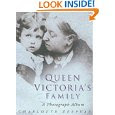
What is it about those French songs that so plays on the heart? Jacques Brel and Edith Piaf are so utterly self-indulgent and play out their own personal traumas and, in so doing, capture everyone's trauma. But then along comes Charles Trenet with 'La Mer', which is so uplifting to the point where you long to dance barefoot on the sand and run headlong into the sea. Perhaps it is because they run the whole gamut of emotions from the tawdry lives of the back streets and the seeming emptiness of life, through the overheard conversations (a little like T.S. Eliot's "The Love Song of Alfred J. Prufrock) to the ecstasy and agony of existence and love and everything else that comes along. They just express feeling to the core. It plays on the heart and it plays on the soul rather than the mind.
We live so much in our heads and, while that might be fruitful or destructive, sometimes it's just love to unwind to an ultra-depressing Leonard Cohen, Jacques Brel or Edith...and then come back again to Charles Trenet...Ah! (Gallic shrug), to misquote Prevert, one of whose brilliant poems, "Barbara" sang, Brel sang, "Quelle connerie la vie!" ('what a sod life is' - but it's fascinating to experience everything!). Here is my favourite Prevert poem, Barbara:
Rappelle-toi Barbara
Il pleuvait sans cesse sur Brest ce jour-là
Et tu marchais souriante
Épanouie, ravie, ruisselante
Sous la pluie
Rappelle-toi Barbara
Il pleuvait sans cesse sur Brest
Et je t’ai croisé rue de Siam
Tu souriais
Et moi je souriais de même
Rappelle-toi Barbara
Toi que je ne connaissais pas
Toi qui ne me connaissais pas
Rappelle-toi
Rappelle-toi quand même ce jour-là
N’oublie pas
Un homme sous un porche s’abritait
Et il a crié ton nom
Barbara
Et tu as couru vers lui sous la pluie
Ruisselante, ravie, épanouie
Et tu t’es jetée dans ses bras
Rappelle-toi cela Barbara
Et ne m’en veux pas si je te tutoie
Je dis tu à tous ceux que j’aime
Même si je ne les ai vu qu’une seule fois
Je dis tu à tous ceux qui s’aiment
Même si je ne les connais pas
Rappelle-toi Barbara
N’oublie pas
Cette pluie sage et heureuse
Sur ton visage heureux
Sur cette ville heureuse
Cette pluie sur la mer
Sur l’arsenal
Sur le bateau d’Ouessant
Oh Barbara
Quelle connerie la guerre
Qu’es-tu devenue maintenant
Sous cette pluie de fer
De feu d’acier de sang
Et celui qui te serrait dans ses bras
Amoureusement
Est-il mort disparu ou encore vivant
Oh Barbara
Il pleut sans cesse sur Brest
Comme il pleuvait avant
Mais ce n’est plus pareil et tout est abîmé
C’est une pluie de deuil, terrible et désolée
Ce n’est même plus l’orage
De fer d’acier et de sang
Tout simplement des nuages
Qui crèvent comme des chiens
Des chiens qui disparaissent
Au fil de l’eau sur Brest
Et vont pourrir au loin
Au loin, très loin de Brest
Dont il ne reste rien.






















